Abstract
Rhizosphere population dynamics of seven Pseudomonas fluorescens and Pseudomonas putida strains isolated from rhizospheres of various agricultural plants were studied on potato (Solanum tuberosum L.) in field soil under controlled environmental conditions. Rhizosphere populations of two strains (B10 and B4) were quantitatively related to initial seed piece inoculum levels when plants were grown at −0.3 bar matric potential. At a given inoculum level, rhizosphere populations of strain B4 were consistently greater than those of strain B10. In vivo growth curves on 4-cm root tip-proximal segments indicated that both strains grew at similar rates in the potato rhizosphere, but large populations of strain B10 were not maintained at 24°C after 7 h, whereas those of strain B4 were maintained for at least 40 h. Although both strains grew more rapidly in the rhizosphere at 24°C than at 12°C, their rhizosphere populations after seed piece inoculation were generally greater at 12 or 18°C, indicating that in vivo growth did not solely determine rhizosphere populations in these studies. In vitro osmotolerance of seven Pseudomonas strains (including strains B4 and B10) was correlated with their abilities to establish stable populations in the rhizosphere of potato. Stability of rhizosphere populations of the Pseudomonas strains studied here was maximized at low (i.e., 12°C) soil temperatures. These results indicate that Pseudomonas strains differ in their capacity to maintain stable rhizosphere populations in association with potato. This capacity, distinct from the ability to grow in the rhizosphere, may limit the establishment of rhizosphere populations under some environmental conditions.
Full text
PDF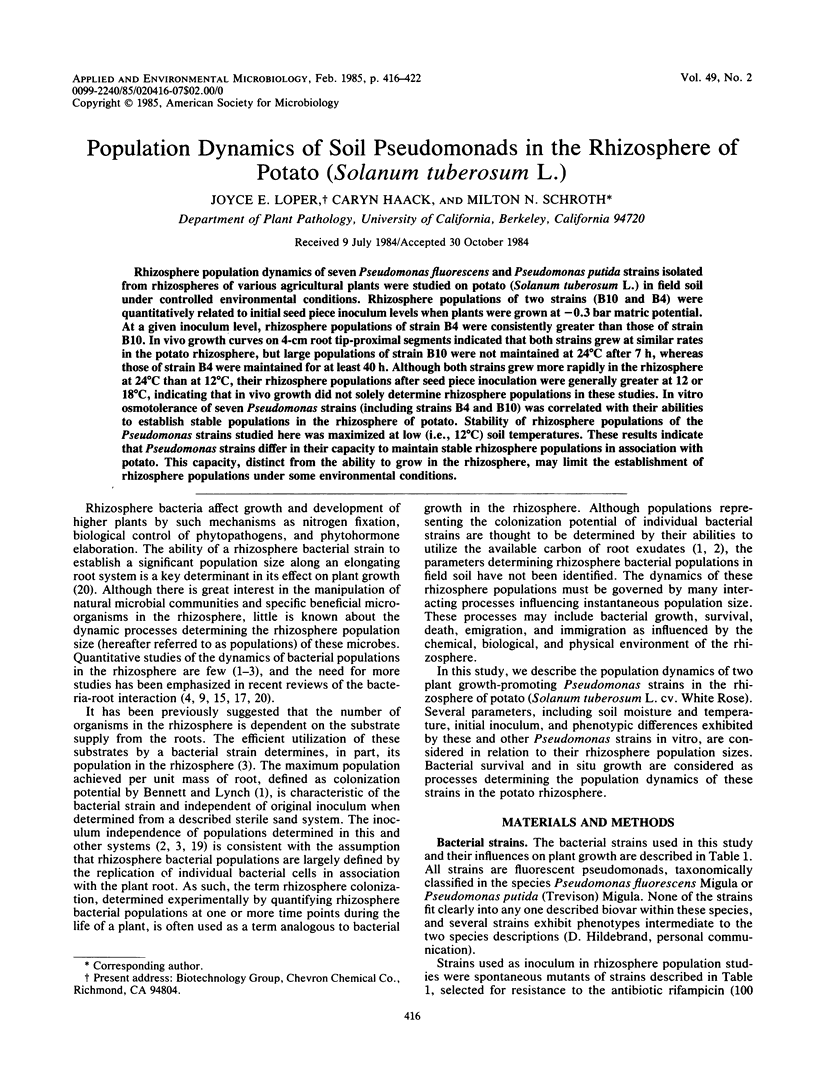
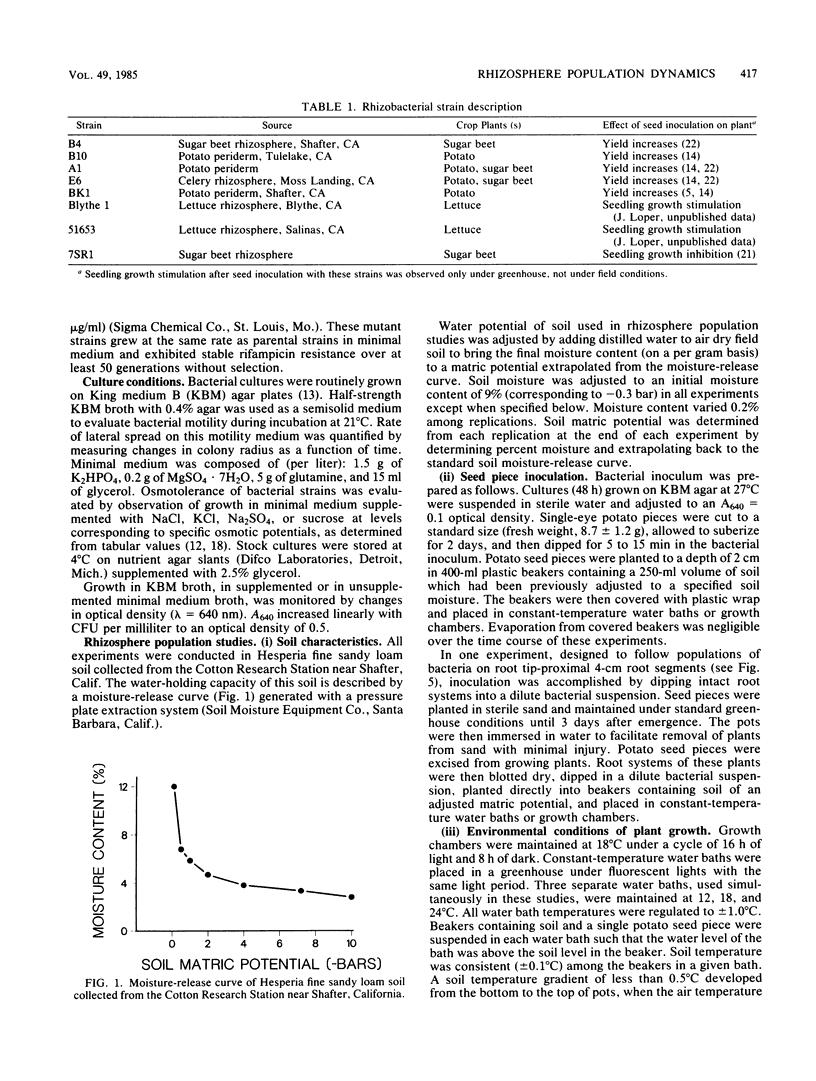
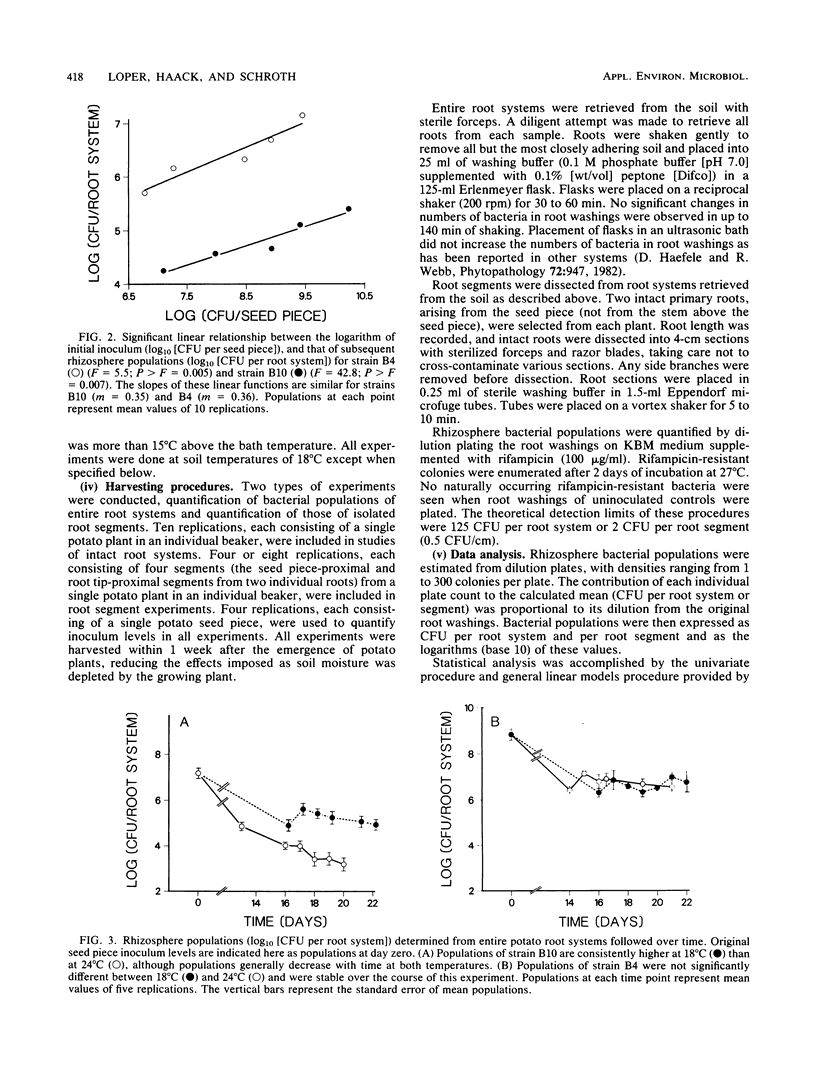
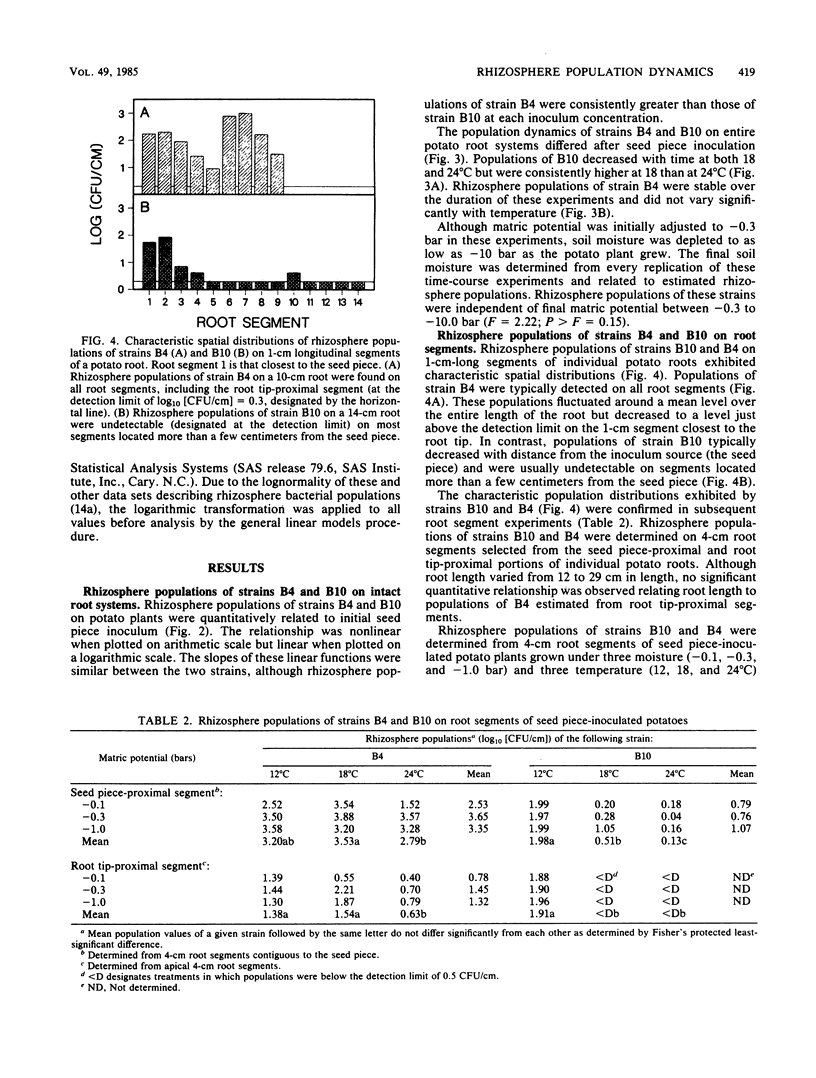
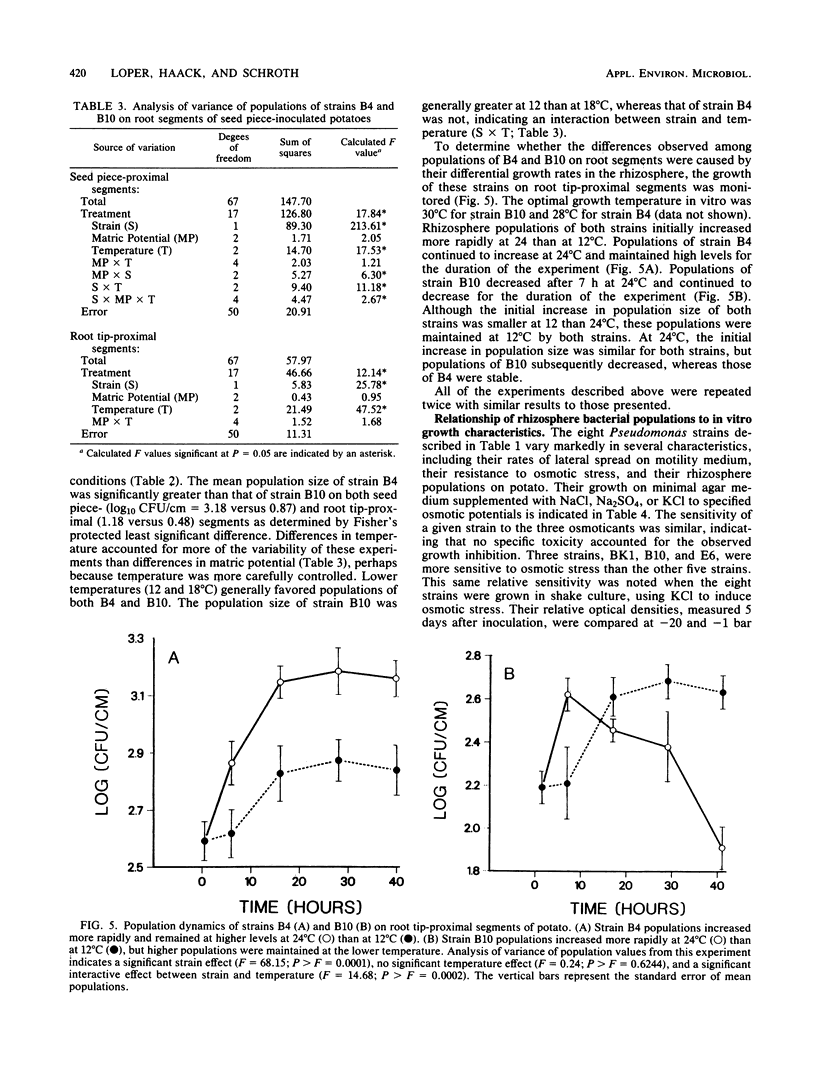
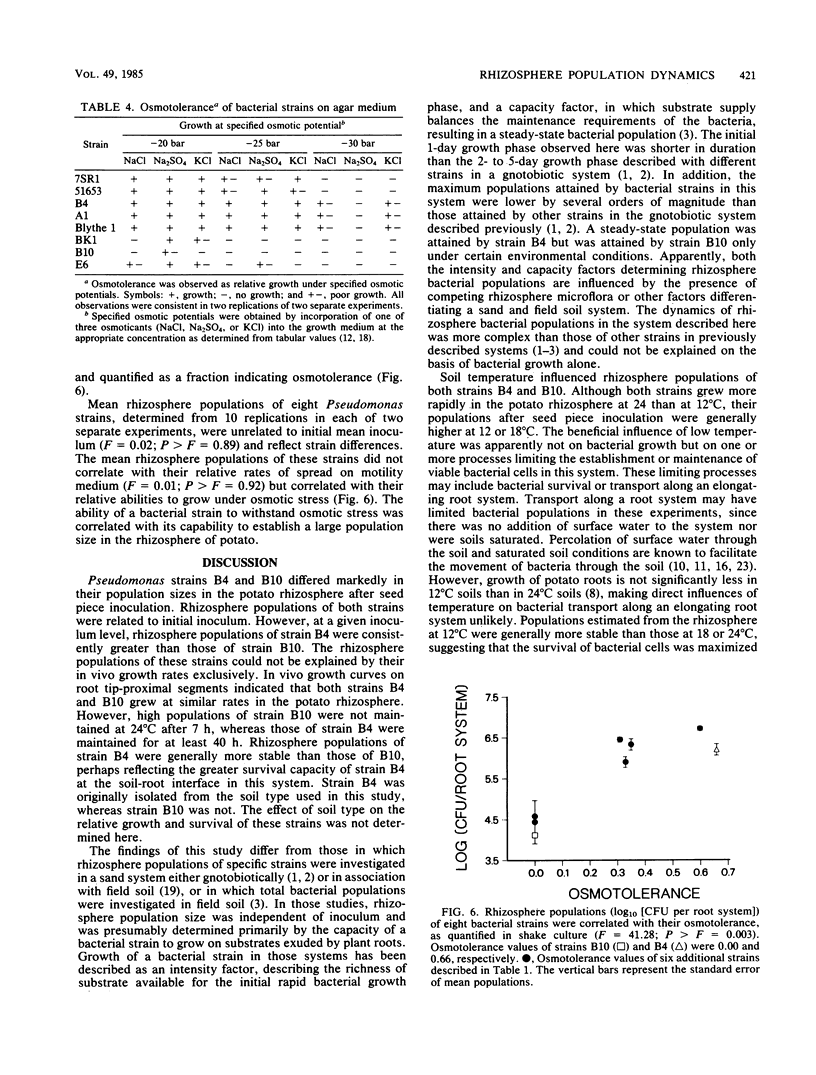
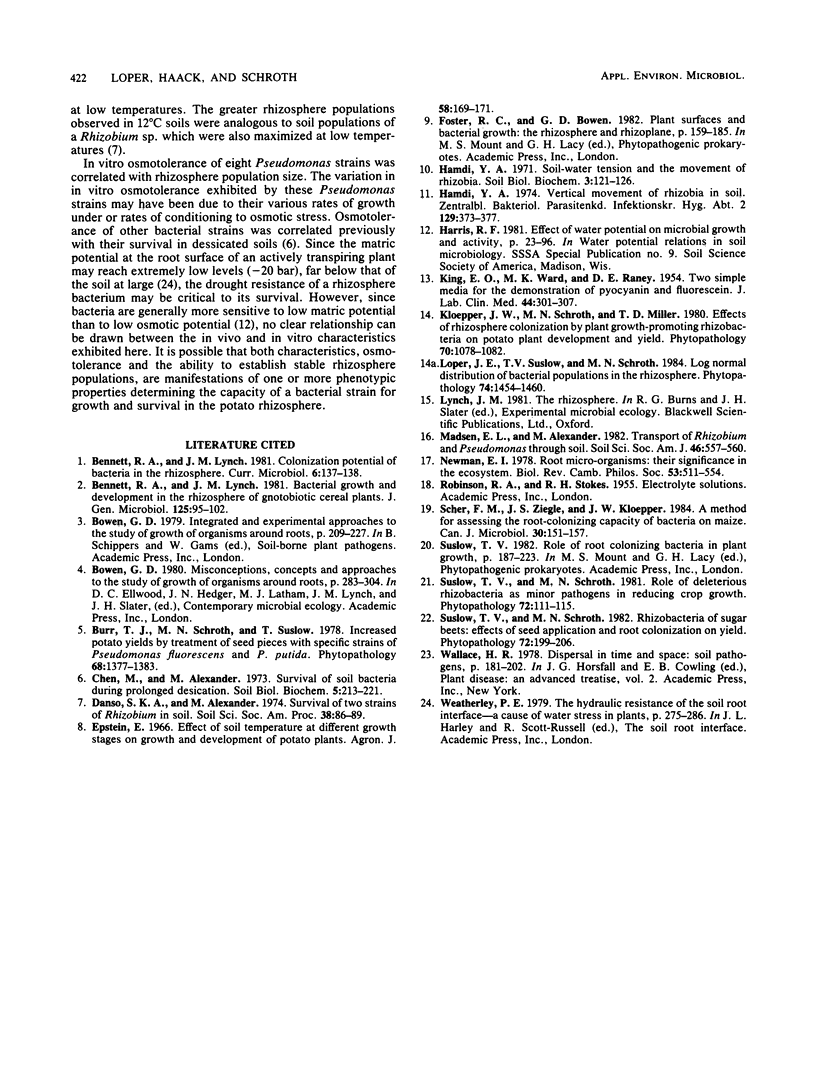
Selected References
These references are in PubMed. This may not be the complete list of references from this article.
- Hamdi Y. A. Vertical movement of rhizobia in soil. Zentralbl Bakteriol Parasitenkd Infektionskr Hyg. 1974;129(3-4):373–377. doi: 10.1016/s0044-4057(74)80054-7. [DOI] [PubMed] [Google Scholar]
- KING E. O., WARD M. K., RANEY D. E. Two simple media for the demonstration of pyocyanin and fluorescin. J Lab Clin Med. 1954 Aug;44(2):301–307. [PubMed] [Google Scholar]



